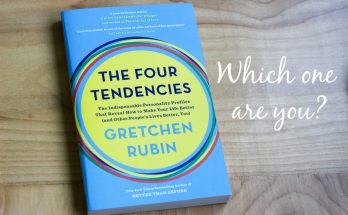When my book club chose the novel “American Dirt” as the next pick for our reading list this year, my initial thought was that I’d bow out of that reading and subsequent club meeting.
The book, written by Jeanine Cummins, is rife with controversy and quite honestly, was something I never intended to read. I expressed some of my concerns about the book, and not surprisingly, my all-white ladies group had no idea of some of the fallout that came from this novel. After all, it was on the New York Time’s bestseller list and endorsed by Oprah, so what was the problem?
While the women in my book club are wonderful people, they don’t necessarily maintain a grasp on some of the things going on in the wider world, especially amongst people of color. I’m a white, 50-something woman myself, but my situation is somewhat different, as I come from a diverse socio-economic background, am married to a person of color, and I’m fairly involved in social justice issues.
The problem
There are a lot of problems with Cummins’ book. Prominent Latinx writers have pointed out that the story, which tells of a Mexican woman fleeing Acapulco with her young son after her husband is murdered by the Cartel, is full of clichés and presents stereotypical appropriations of Mexican and Central American culture. Even worse, much of the writing appears to be heavily influenced by other Latinx writers, with some passages coming close to outright plagiarism.
The novel, released in early 2020, was immediately selected by Oprah’s Book Club, after the mogul said she was “deeply moved” by the story.
Soonafter, Oprah received a letter signed by more than 140 Latinx writers, asking her to reconsider the book as a selection. Oprah defended her decision, but did host a 2-part panel discussing the controversy surrounding the book, and agreed that she was guilty of not seeking out Latinx writers to support.
Criticism against Cummins as a person also surfaced. While her heritage includes a Puerto Rican grandmother, Cummins has said she considers herself to be white. Yet her publishers promoted her as a Latinx writer when the book was released, which, to be fair, may not have been something Cummins endorsed.
She did, however, refer to her spouse as an “undocumented immigrant” without clarifying that he actually migrated from Ireland, a completely different kind of immigration than the story in her book.
On social media, Cummins was effectively and quickly cancelled, with the Latinx community blasting the book. Her book tour was eventually cancelled as well, with organizers citing safety concerns after reports of threats against Cummins.
Still, many supporters of the book say that any narrative surrounding immigration is important, and that while there certainly need to be more books on the subject by Latinx writers, Cummins should not be outright dismissed simply because her novel misses the mark on many levels.
My husband is a Latinx writer, an award-winning one, I might add. We have Latinx friends who are also award-winning writers, one of whom had what were close to direct passages from one of their books transplanted into Cummins pages.
These writers, who have fought to get their work out there and voices heard, have been able to document migrants and their stories accurately, providing a true and clear picture of the immigration crisis in a way that is far superior to Cummins’ tale. Yet it is Cummins who garnered a million-dollar advance and a movie deal.
As a storyteller myself, I’ve been in the position of wondering whether or not I’m the person who should be writing on a particular topic. But I feel that if I have to ask myself that question, then chances are, there are other writers out there, writers who have been marginalized by white women just like me, who are already telling the story and can do so in a way I never can.
Writers who have lived the stories, who deserve to be the ones to tell them. Supporting the voices of those writers, reading and promoting their work, is a far better use of my time than trying to tell a story I’m simply not equipped to tell with any level of accuracy.
In the end, I realized that in order to be fully informed in my opinions about the book, maybe I should read it. So, I did, and while I didn’t think the writing was bad in and of itself, I immediately saw what everyone was talking about, and why Cummins was not the person to write this book.
Cummins appears to have had good intentions in her desire to help build a stronger narrative around the topic of immigration. But like many great white saviors, she doesn’t seem to understand that stepping back and allowing those writers with a greater understanding of both the culture and the crisis would have been a better use of her platform.
As far as my book club goes, they loved the book and the story. But did reading it give them any real insight into the lives of migrants? Did the book personalize things in any way, or was it just an enjoyable work of fiction that didn’t affect them any more than reading the latest Danielle Steele novel?
All I know is that moving forward, my book club suggestions will center around those writers who are truly making a difference, those who might make us uncomfortable, even make us squirm a little, but who also make us reconsider our preconceived stereotypes. I don’t know if my book selections can make a real difference, but maybe, just maybe, it can make us all a bit more aware, a bit more thoughtful, and a bit more empathetic.



